In 2025, approximately 55% of social media users have made a purchase on Amazon after seeing a product recommended by an influencer. The global influencer marketing industry is projected to reach $32.55 billion this year, up from $24 billion in 2024, reflecting significant growth in brand investments. Additionally, about 86% of U.S. marketers plan to partner with influencers in 2025, highlighting the increasing reliance on influencer collaborations.
These three data points clearly demonstrate that Amazon Influencer Marketing effectively increases product visibility amid the vast selection on Amazon.
This guide will walk you through how to find Amazon influencers to amplify your product promotions.
What is an Amazon Influencer?
Amazon influencers are people who promote Amazon products on social media platforms.
They usually have a large number of followers on platforms such as Instagram, YouTube, TikTok or blogs, and these followers trust their suggestions and opinions.
Through the Amazon Influencer Program, these social media celebrities can build personal stores on the platform and select product lists. After sharing a unique link, every time a fan follows the shopping link, they can get a proportional sales commission to realize traffic monetization.
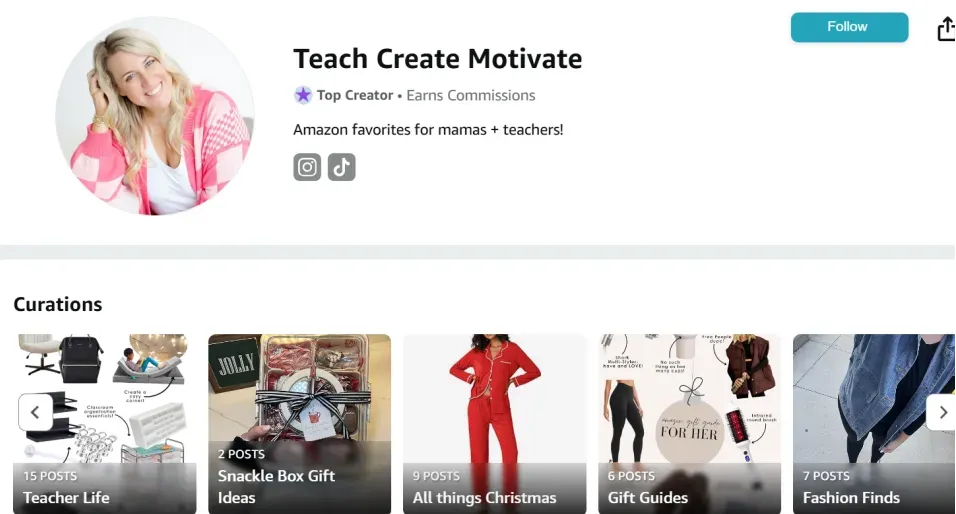
What is Amazon Influencer Marketing?
Amazon Influencer Marketing is a form of marketing in which brands and businesses promote products by tapping into the audience of social media influencers.
These users use tactics such as influencer collections, endorsements, Amazon affiliate links, and curated store pages to guide their audience towards Amazon products, increasing sales and visibility.
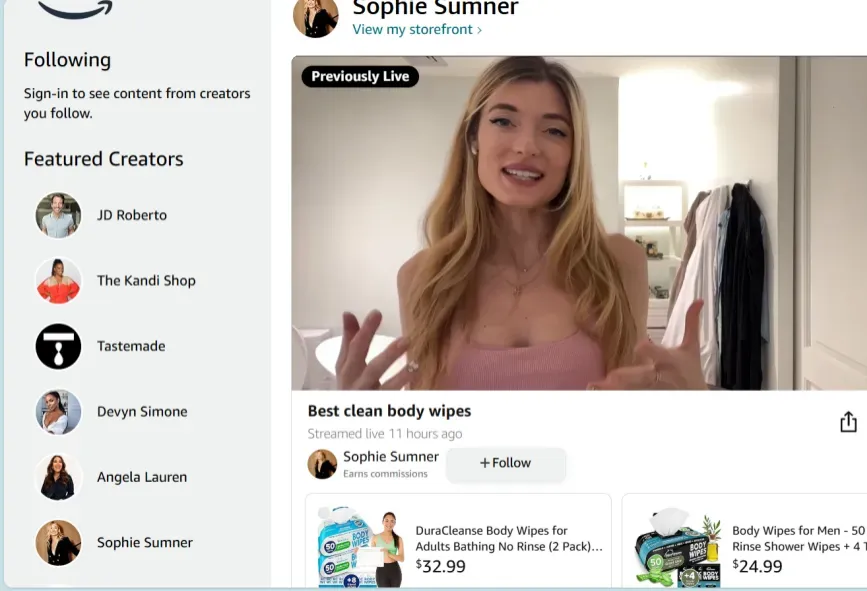
What is the Amazon Influencer Program?
Amazon has two affiliate programs, the Amazon Influencer Program and the Amazon Associates Program.
The Amazon Associates Program is Amazon’s official affiliate marketing program. It allows individuals and businesses to earn commissions by promoting Amazon products and driving sales through unique referral links.
The Amazon Influencer Program is an extension of Amazon’s affiliate marketing initiative, tailored for content creators with a significant social media presence. It enables influencers to earn commissions by promoting Amazon products through personalized storefronts and affiliate links.
Both programs encourage sales through recommendations but differ in focus: Influencers get specialized tools and personal storefronts, while Associates allow any website owner to earn by linking to Amazon products.
What is an Amazon influencer storefront?
An Amazon Influencer Storefront is a dedicated space on Amazon where influencers can showcase their favorite products in one easy-to-browse spot. It gives their followers a quick way to explore items the influencer has tried, liked, and recommended. With photos, videos, and direct links to featured products, it adds a personal touch to the usual shopping experience.
It’s almost like scrolling a curated feed, but with everything available to buy instantly.
Types of Amazon Influencers
Here are four types of influencers according to the number of followers:
Mega influencers: >1M followers
Macro influencers: 100K – 1M followers
Micro influencers: 10K-1Mfollowers
Nano influencers: 1K – 10K followers
The Top Amazon Influencers to Notice
1.Lexie Learmann—The Ultimate Health & Wellness Expert and Lifestyle Trendsetter!

2.Melanie Turner—At Melanie Turner’s, the focus is on living luxuriously without breaking your budget.

3.Leena Snoubar—Leena Snoubar’s Amazon storefront is a treasure trove of modest fashion, beauty essentials, home decor, and family-friendly goods.

4.Dave and Sissy—TikTok’s dynamic couple Dave and Sissy satisfy your needs with their hilarious reviews of Amazon gadgets.

5.Penny Vahka—Step into Penny Vahka’s store and get ready to conquer any occasion with style and glamour.

6.Jamye Hunter—If you need an influencer who is also experienced in healthy lifestyle and even self-defense, then Jamye is your best choice.

7.Infantino—People who are looking for high-quality and affordable baby products that also have fashionable designs usually choose Infantino as their first choice.

8.Kev Blackburn—Kevin Blackburn teaches emerging influencers how to make money with the Amazon FBA (Fulfillment by Amazon) program. If your brand needs a product reviewer and marketing expert, Kevin is the right choice.
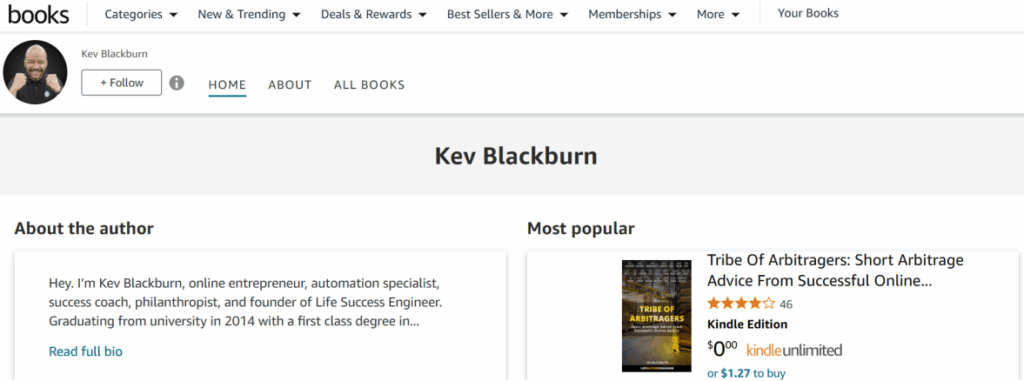
9.Laura Fuentes—The healthy food enthusiast provides recipes and meal plans for her fans.

10.TbonesTech—As a professional cinematographer, Tbones posts unboxing videos of the latest photography gear on his channel.

The Benefits of Amazon Influencer Marketing
Increased Product Visibility and Credibility
Amazon is the largest online retailer in the U.S. and has more than 310 million active users worldwide. Influencers help highlight products to a larger audience, boosting visibility within Amazon’s expansive marketplace. Their followers trust their opinions, leading to higher conversion rates.
Targeted Reach and Enhanced Engagement Rates
Influencers on Amazon often have niche audiences, ensuring your product reaches potential new customers who are genuinely interested in your category.
Influencer-generated content can lead to increased interaction with your brand.
SEO Benefits
Content created by influencers can improve search engine rankings for both the influencer’s page and yours, driving organic traffic to Amazon listings.
Cost-Effective
Compared to traditional advertising methods, influencer marketing can offer better ROI due to its targeted nature and ability to leverage existing communities.
Diverse Storytelling
Influencers bring fresh perspectives, engaging content and creative approaches to showcasing your product, which can resonate differently with various segments of the market.
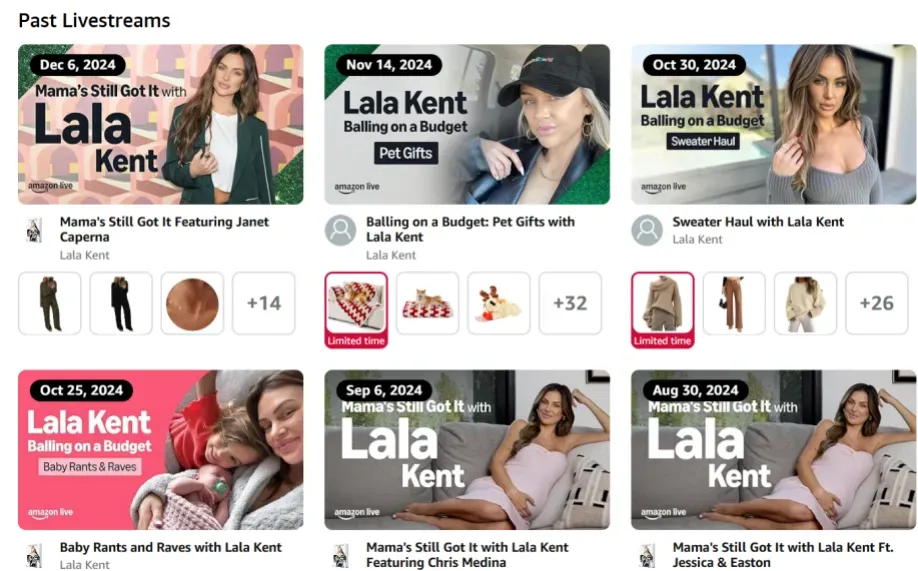
Common Amazon Influencer Commission Rates
The Amazon influencer commission rates heavily depend upon the product category, and the percentages can range from 1% to 10% and even beyond. There are two types of Amazon influencers, and their commission differs depending on the type.
On-site Amazon influencers are those with Amazon storefronts, Amazon Live influencers, and Amazon Editorial reviewers. Follow the table below to know the Amazon influencer commission rates for on-site influencers:
| Product Category | Commission Rate |
| Digital and Physical Music, Handmade, Digital Videos | 5.00% |
| Amazon Fire Tablet Devices, Amazon Kindle Devices, Amazon Fashion Women’s, Men’s & Kids Private Label, Luxury Stores Fashion, Apparel, Amazon Cloud Cam Devices, Fire TV Edition Smart TVs, Amazon Fire TV Devices, Amazon Echo Devices, Ring Devices, Watches, Jewelry, Luggage, Shoes, and Handbags & Accessories | 4.00% |
| Physical Books, Kitchen, Automotive | 4.50% |
| Toys, Furniture, Home, Home Improvement, Lawn & Garden, Pets Products, Headphones, Beauty, Musical Instruments, Business & Industrial Supplies, Outdoors, Tools, Sports, Baby Products, Amazon Coins | 3.00% |
| PC, PC Components, DVD & Blu-Ray | 2.50% |
| Television, Digital Video Games | 2.00% |
| Amazon Fresh, Physical Video Games, Video Game Console, Groceries, Health & Personal Care | 1.00% |
| Gift Cards; Wireless Service Plans; Alcoholic Beverages; Digital Kindle Products purchased as a subscription; Food prepared and delivered from a restaurant; Amazon Appstore, Prime Now, or Amazon Pay Places | 0.00% |
| Luxury Beauty, Luxury Stores Beauty, Amazon Explore | 10.00% |
| Amazon Games | 20.00% |
| All Other Categories | 4.00% |
The other type is off-site, where the influencers earn a commission when they refer sales to Amazon from their own website or channel. Therefore, platforms such as Instagram, YouTube, Medium, Pinterest, Twitch, and other similar ones come under this category.
| Product Category | Commission Rate |
| TV, Digital Download Games | 2.00% |
| Business & Industrial Supplies | 6.00% |
| Video Games, Game Consoles | 1.00% |
| Toys | 3.00% |
| Luxury, Beauty, Fashion, Amazon Coins | 10.00% |
| Clothes & Accessories, Amazon TV, Echo, Jewelry | 7.00% |
| Digital Music, Video Downloads, Grocery, Handmade, Musical Instruments | 5.00% |
In order to refer to the commission rates and keep yourself updated, you can also keep track of everything on Amazon’s web page related to commission rates.
How to Find Amazon Influencers
There are many ways to find influencers on Amazon, including using influencer marketing platforms and browsing through hashtags and content. Let’s explore these in more detail.
For more specific tips, please refer to this article to learn how to find and contact Amazon influencers.
1. Use an Amazon Influencer Marketing Platform
Already using a platform to manage creator partnerships? Good news! Finding Amazon influencers just got way easier.
Most influencers on TikTok or Instagram are Amazon affiliates, even if it’s not obvious at first glance. That’s because they’re not tied to one platform like traditional creators.
This is where Influencer Marketing Platforms such as Gleemo come into play. Gleemo connects brands with pre-vetted Amazon influencers who are already active in the affiliate program. You get matched faster, and the platform handles fulfillment and delivery, so you can skip the admin headache and focus on the collab.
2. Browse Amazon Live and #FoundItOnAmazon
Amazon itself is a great place to start, but don’t expect a search bar just for influencers.
Instead, check out Amazon Live, where creators livestream product demos and chat with shoppers in real time.
Then there’s #FoundItOnAmazon, a curated feed of creator-tagged product photos. You can filter by category (like fashion, home, or beauty) to find influencers that align with your brand.
3. Search #Amazon Hashtags on TikTok and Instagram
Creators love sharing their Amazon finds, especially on social platforms where product recommendations can go viral fast.
Start by browsing hashtags. You’ll often find storefront links right in bios.
Try these on Instagram:
- #AmazonFinds
- #AmazonFashion
- #AmazonDeals
- #AmazonMustHaves
- #AmazonHome
Instagram is big on polished content, especially for fashion and home items. TikTok, on the other hand, is where you’ll see viral reviews, daily deals, and “lifehack” products. Basically, if it’s on Amazon, it’s fair game on TikTok.
4. Look Within Your Own Community
Chances are, some of your existing fans are already Amazon influencers.
Check out customers who tag you often or mention your brand. Then:
- Look for Amazon links in their bio or Linktree
- Scan their content for affiliate-style posts
- See if they’re featuring other Amazon products
If someone is clearly active, follow them and consider reaching out. They’re already engaging with your brand, so it’s a natural next step.
How to Launch a Successful Amazon Influencer Advocacy Campaign
Now that you understand the value of influencer marketing on Amazon, you might be considering creating your first campaign. Here are some best practices to follow.
Step 1 – Identify your target audience
Use market research tools (e.g., Gleemo) to identify the ideal buyer profile for your product, such as age, hobbies, and location.
If you sell outdoor sports gear, you might target young people who enjoy hiking and camping.
Step 2 – Choose the Right Influencer
Browse potential influencers’ social media accounts, check for authenticity and engagement in the comment section, and avoid bots.For sports brands, you might consider partnering with a bodybuilding blogger like fitnessbuddy.21, who has a loyal following of people who love fitness.
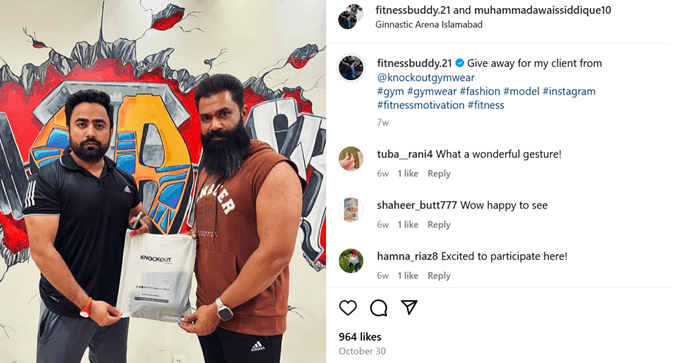
Step 3 – Develop a Partnership Plan
Imagine a series of stories involving your product, such as actual use scenarios of outdoor gear in extreme weather.The influencer can create a video or graphic about how to prepare for a camping trip, detailing your tent, sleeping bag, and other essential gear. Like msr_gear, his social media content is all about camping and the outdoors.
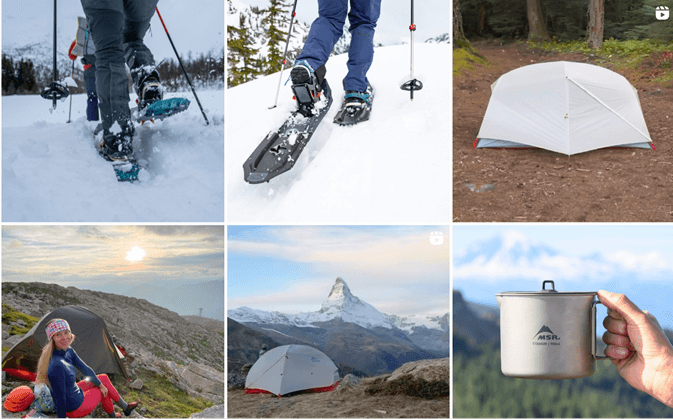
Step 4 – Build a Partnership
Send a customized partnership invitation email outlining the proposal and expected results, and negotiate terms that benefit both parties.
You can provide samples to the influencer and discuss whether you can get additional exposure opportunities by paying a certain fee, such as appearing in a story highlight or pinned post.

Step 5 – Track and Measure Engagement Metrics
Set up tracking links or coupon codes to monitor sales growth and ROI.
For example, you can set up a unique link like “ADVENTURE20” to record all conversions from this collaboration.
Challenges and How to Overcome Them
Common Pitfalls in Amazon Influencer Marketing
While Amazon influencer marketing offers immense potential, brands often stumble into avoidable traps. One major pitfall is partnering with influencers based solely on follower counts, ignoring audience alignment. For example, a skincare brand collaborating with a gaming influencer will likely see poor results.
Another issue is vague campaign goals—launching without clear KPIs like sales targets or engagement rates leads to disjointed efforts. Additionally, inconsistent content quality (e.g., rushed product reviews) can damage brand credibility.
To avoid these missteps:
- Use tools like Amazon’s Influencer Program dashboard or third-party platforms (e.g., Gleemo) to vet influencers based on audience demographics and content relevance.
- Define SMART goals (Specific, Measurable, Achievable, Relevant, Time-bound) for each campaign.
- Provide influencers with detailed briefs, including tone, key messaging, and compliance guidelines.
Managing Fake Reviews and Compliance Risks
Amazon’s strict anti-manipulation policies mean even unintentional violations—like incentivized reviews—can result in penalties or account suspensions. Fake reviews, whether from bots or poorly vetted influencers, erode consumer trust and harm SEO rankings.
Mitigation strategies:
- Use trackable methods like custom affiliate links or promo codes to attribute sales accurately.
- Educate influencers on Amazon’s guidelines (e.g., no “review-for-product” exchanges).
- Monitor reviews with tools like Fakespot or ReviewMeta to flag suspicious activity.
Maintaining Authentic Influencer Relationships
Transactional partnerships often yield lackluster content. For instance, influencers may prioritize deadlines over creativity, leading to generic posts.
To foster authenticity:
- Build long-term partnerships by offering exclusive perks like early product access or performance bonuses.
- Encourage creative freedom—micro-influencers often produce more relatable content when given flexibility.
- Communicate transparently about expectations and feedback.
How to Track and Optimize Your Amazon Influencer Campaigns
Key KPIs: Clicks, Conversions, Sales, Engagement
Track these metrics to gauge success:
- Clicks: Measures initial interest via affiliate links.
- Conversions: Percentage of clicks leading to purchases.
- Sales: Total revenue attributed to influencers.
- Engagement: Likes, comments, and shares on influencer content.
Low engagement but high sales? The influencer’s audience may be highly transactional. Adjust your strategy accordingly.
Using Amazon Attribution and Other Tracking Tools
Amazon Attribution (beta) provides detailed insights into how off-Amazon traffic (e.g., Instagram posts) drives sales. Pair it with:
- UTM Parameters: Track traffic sources in Google Analytics.
- Influencer-Specific Codes: Unique discount codes for each partner.
- Third-Party Platforms: Tools like Impact.com or Refersion for cross-channel analytics.
Tips for Campaign Optimization and Scaling
- A/B Test Content Formats: Compare video reviews vs. photo carousels to identify top performers.
- Reinvest in Top Influencers: Allocate 70% of your budget to high-converting partners.
- Expand to Niche Platforms: Tap into Pinterest or TikTok influencers for visual or viral products.
- Seasonal Adjustments: Ramp up campaigns around Prime Day or Black Friday.
By combining rigorous tracking with strategic relationship-building, brands can turn Amazon influencer marketing into a scalable, ROI-driven channel.
Best Practices for Collaborating with Amazon Influencers
1.Fitbit x Health Influencers: The Resonance of Health Technology
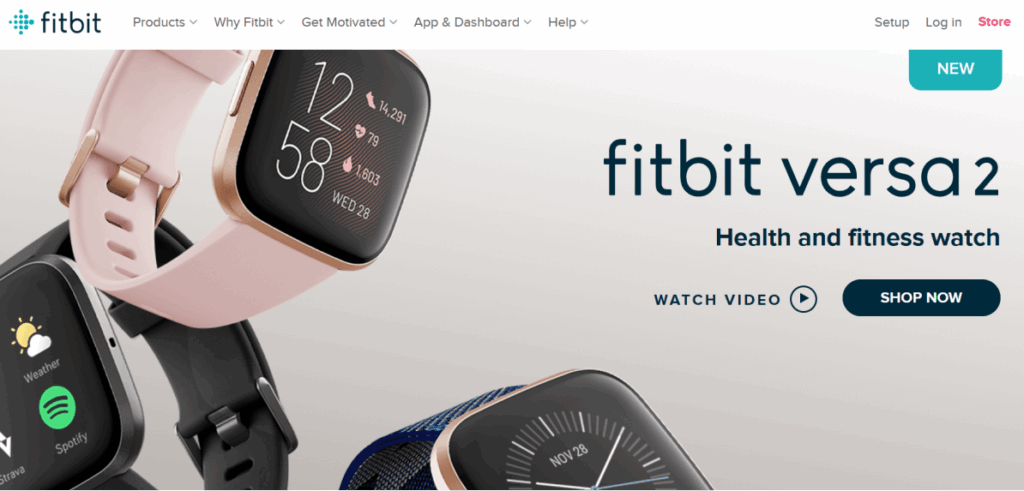
Background
Fitbit is a leading wearable technology brand dedicated to providing health management solutions. As market competition intensifies, Fitbit seeks innovative ways to increase its market share of smartwatches and health trackers.
Strategy
- Partner screening: Select a group of influential health and fitness bloggers, coaches and nutritionists who have a loyal and active fan base.
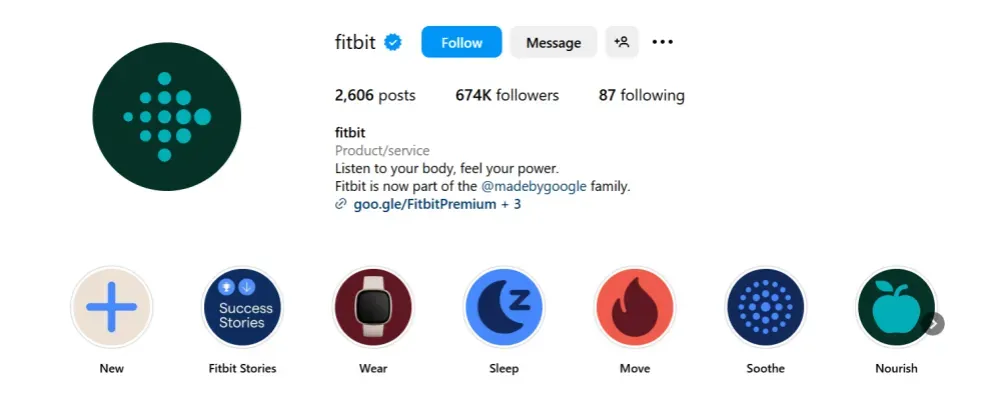
- Content co-creation: Encourage influencers to use Fitbit products in their daily lives, record and share their experiences in their fitness journey.
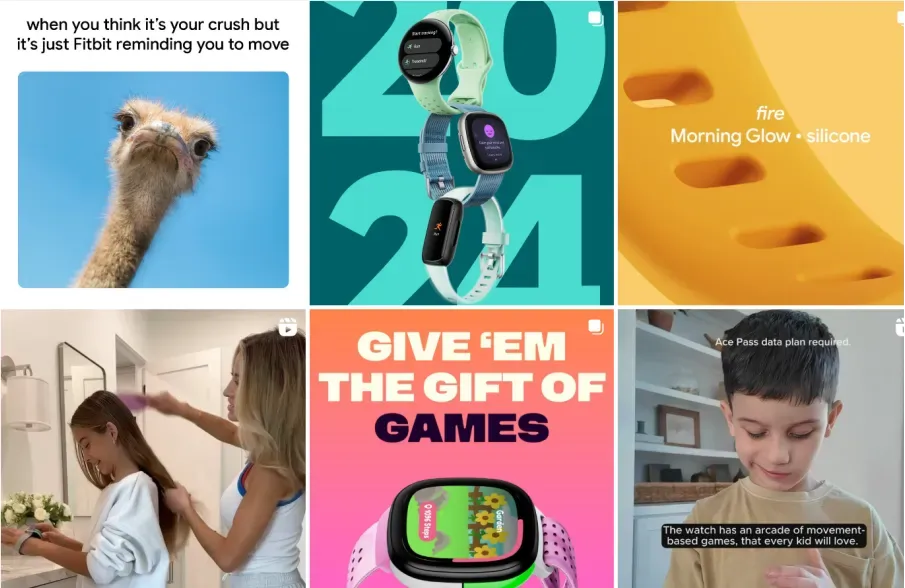
- Social media activation: Use platforms such as Instagram and YouTube to create rich and diverse content, including exercise videos.
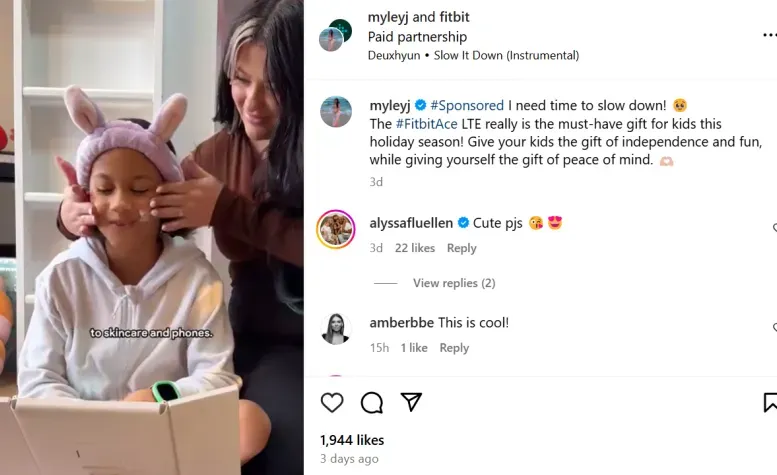
- Data-driven: Use dedicated tracking links and promotional codes to monitor the traffic and sales conversions brought by the activities and refine the operation strategy.
Results:
Fitbit cleverly combined the power of Amazon influencer marketing to successfully create a perfect publicity storm that combines technology and a healthy lifestyle. It not only promoted product sales but also deepened the connection with consumers, laying a solid foundation for the long-term development of the brand.
2.L’Oreal Paris & Beauty Bloggers: The Dance of Color and Beauty
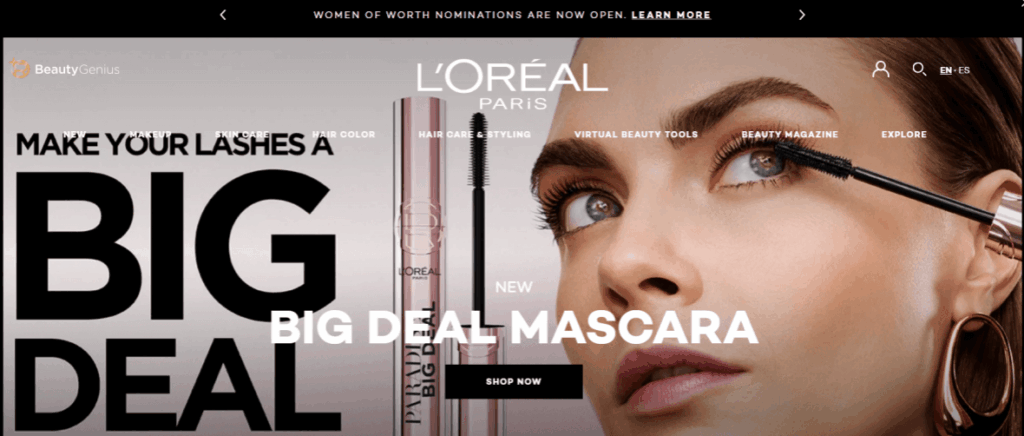
Background:
As a world-renowned beauty brand, L’Oreal Paris has always been at the forefront of fashion and is committed to bringing consumers the latest beauty trends.
Strategy:
- Cooperation model: To ensure broad representation, they selected a diverse group of beauty bloggers with different skin colors, ages and aesthetic preferences.
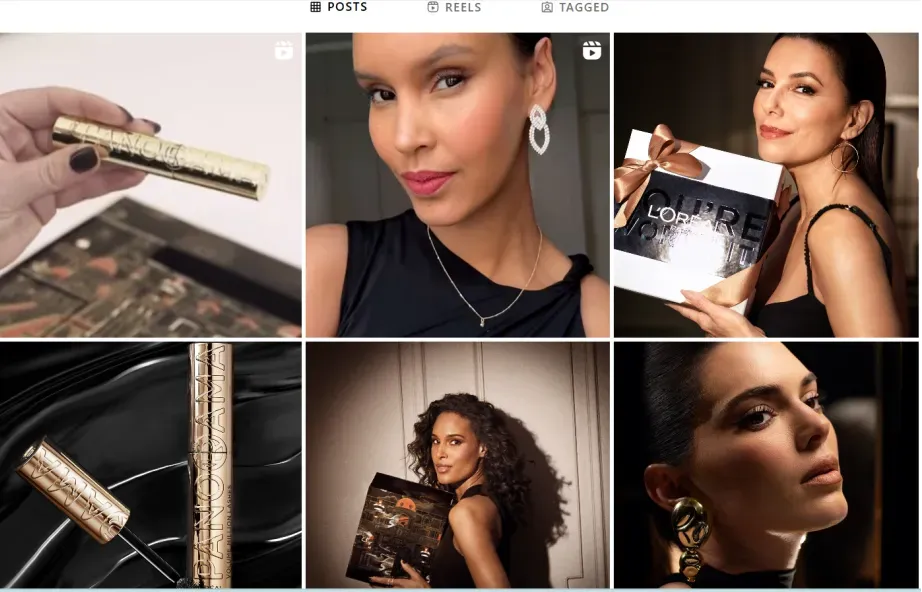
- Content creation: Next, they encouraged bloggers to incorporate L’Oreal products into daily makeup tutorials, show real usage effects, and emphasize the inclusiveness and diversity of products.
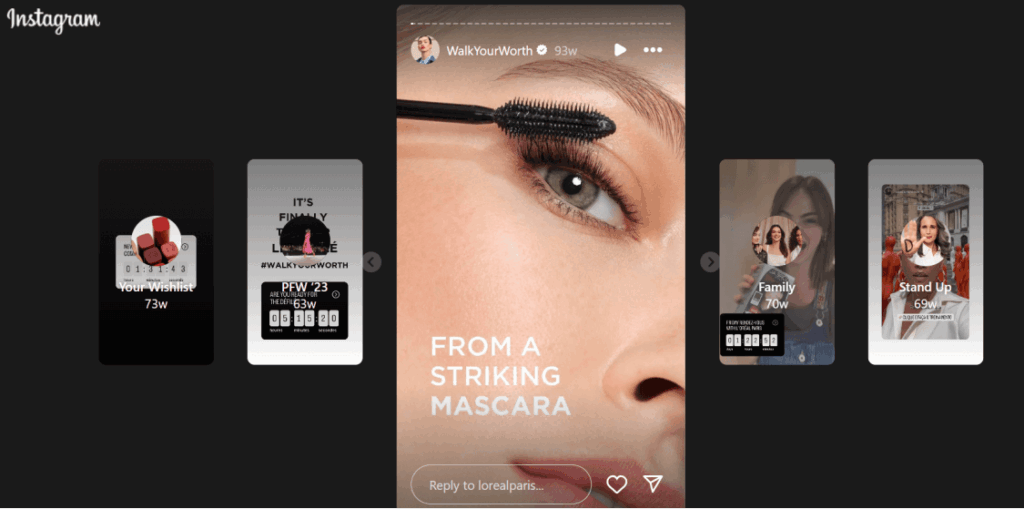
- Platform linkage: To achieve cross-platform communication, short videos and snapshots are also posted on Instagram and TikTok.

- Social drive: The brand focused on hashtags such as #LOrealParisFamily to trigger extensive social media discussions and stimulate user participation.

Results:
L’Oreal Paris’s brand affinity among the younger generation has greatly improved, highlighting the brand’s innovative spirit and fashion sense.pirit and fashion sense.
3.Casper Mattresses & Lifestyle Influencers: The Art of Comfortable Living
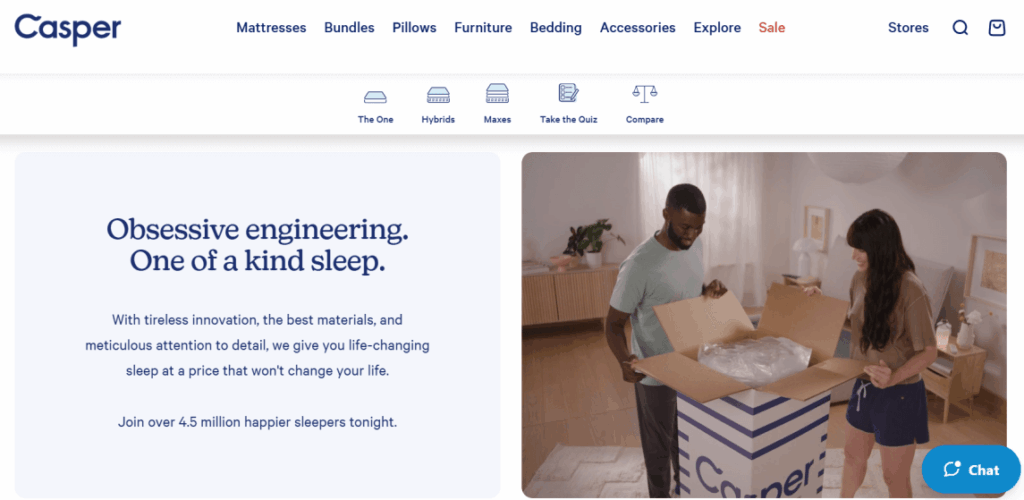
Casper is a fast-growing bedding company known for its high-quality mattresses.
In order to break the barriers of the traditional mattress industry and become the choice for improving the quality of home life. The following strategies were implemented:
- Partners: Invite well-known bloggers in the fields of home decoration and life aesthetics to advocate a holistic philosophy of life rather than a single product promotion.
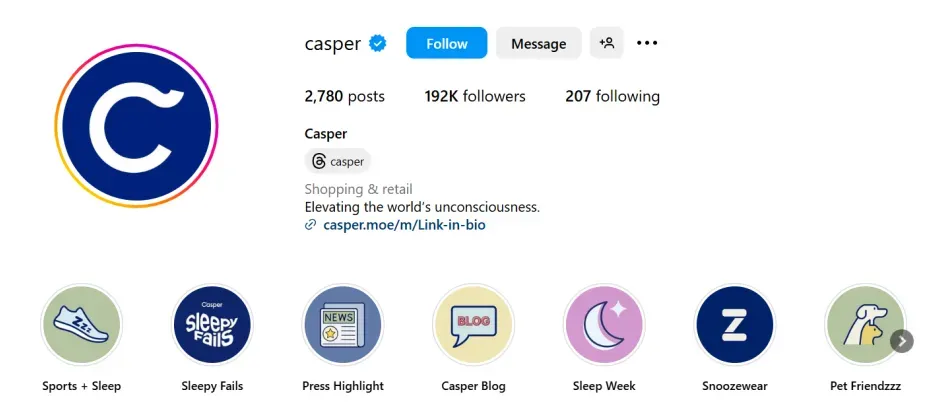
- Storytelling: Influencers share the redesign process of their personal spaces, especially focusing on creating the atmosphere of the sleeping area. They show the balance between beauty and practicality of Casper mattresses.
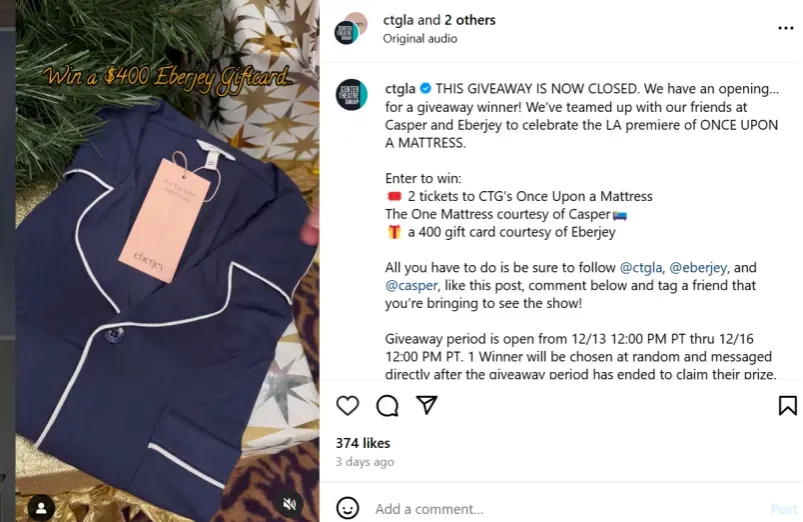
- Shared experience: Set up exclusive discount codes to encourage viewers to easily try products and convert them into purchases.
- Feedback collection: Regularly interact with influencers and continuously optimize products and services based on user feedback.
Casper has established a unique position in the high-end mattress market and is seen as an investment in improving the quality of life. With huge sales increases, Casper forms a group of loyal customers who love to share their sleep experiences.
Amazon Influencer Marketing Made Easy with Gleemo
Whether on Amazon, social media, or anywhere else, influencer marketing continues to grow. Influencers also help give the product a more personal image and strengthen its overall connection.
By following the tips given in this guide, you can easily learn how to find and contact Amazon influencers.
Using influencer marketing platforms like Gleemo.AI is especially helpful because they can provide a lot of data and references in seconds.Visit Gleemo to learn more and start your free trial today!

发表回复